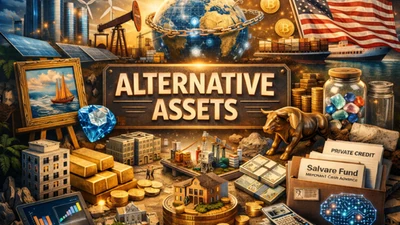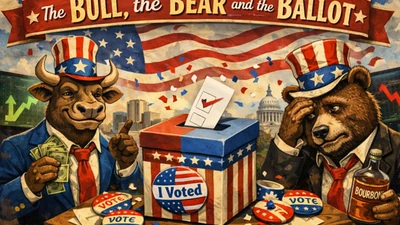In your 20s, there's a quiet pressure to follow the formula—college, career ladder, a 401(k) if you're lucky. But there’s a growing number of young Americans looking at that roadmap and saying, “No thanks.” For some, day trading isn’t about quick riches or internet flexing—it’s about taking back control in a world that feels rigged from the start.
Why This Path Makes Sense (and Why It’s So Risky)
Wall Street and Washington have been in lockstep for decades, protecting legacy players and leaving the rest of us to “just keep investing in the index.” But when inflation eats away at your paycheck and student loans loom like a second rent, waiting 40 years for retirement doesn’t sound like a plan—it sounds like surrender. Day trading, for better or worse, offers something the traditional system doesn’t: immediacy. The freedom to make moves, win or lose, without asking permission from a boss or bureaucrat.
That doesn’t mean it’s easy. Losses come fast, and they sting. There are no bailouts for retail traders, no golden parachutes when a bad trade wipes out a week’s gains. But maybe that’s the point. There’s real accountability here—something sorely missing from most institutions that promise to “take care of you” if you just trust them.
The Bigger Picture: Self-Reliance vs. System Dependence
This shift toward day trading feels like a larger cultural undercurrent. Young people aren’t lazy—they’re observant. They see a world where central banks move markets more than fundamentals, where government spending explodes while their buying power shrinks. They’re opting out of that game. Trading isn’t just a financial decision—it’s a philosophical one. It’s a statement that says: I’d rather take my chances on my own judgment than leave my future to an elite class of decision-makers who rarely face consequences.
What’s Being Learned Beyond the Charts
Win or lose, every trade teaches something: discipline, risk management, emotional control. Those are skills no college course drills into you—and they’re not just useful in markets. They spill into life. There’s a kind of rugged wisdom that comes from watching a chart, making a decision, and owning the outcome. No blaming the system, no pointing fingers—just personal responsibility. That mindset, once common, is now quietly radical.
The Bottom Line for a Generation Thinking Differently
Day trading in your 20s isn’t for everyone—and it shouldn’t be. It’s volatile, stressful, and at times unforgiving. But in an era where trust in institutions is collapsing and traditional paths feel like illusions, trading offers something real: the chance to bet on yourself. That’s a dangerous idea in a world built on conformity. And maybe that’s exactly why it matters.










